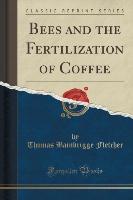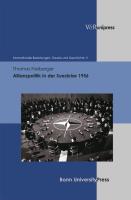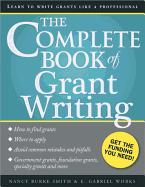Bees and the Fertilization of Coffee (Classic Reprint)
BücherAngebote / Angebote:
Excerpt from Bees and the Fertilization of Coffee
The question of the value of bees in coffee districts was raised at the annual meeting in 1911 of the United Planters Association of Southern India, with particular reference to the effect on outturn of crop caused by the regular destruction of these bees in certain districts (notably the Shevaroys), such destruction being alleged to cause the very marked diminution in the number of bees which is perceptible in such districts. After some discussion, the following resolution was proposed by the delegate for the Shevaroys and seconded by the Nilgiri delegate and passed:
"That Government be asked through the United Planters Association of Southern India to pass some rules prohibiting the destruction of bees in planting districts."
2. The object of this resolution was to prevent or diminish the destruction of the bees themselves but not necessarily to place any impediments on the collection of honey or bees-wax. What was asked for was that Government should enforce rules in the coffee-planting districts to ensure that the bees themselves were not destroyed when their produce was taken. It was considered by the planters that it should be possible to take honey and wax without destroying the bees and that the present method of burning the bees off the combs was adopted simply as entailing the minimum amount of trouble.
3. In reply to this request, instructions were issued by Government that the matter should be investigated by the Entomologist. (See G.O. Mis. No.2062, dated 11th July 1912, and addressed to the Secretary of the United Planters Association.)
4. In order to determine as far as possible the actual importance of bees in t, he pollination of coffee, it was necessary to carry out field experiments to test this point. It was also requisite to find out definitely what species of bees were concerned, to what extent they were actually destroyed and how far such destruction had really effected any appreciable diminution in their numbers and, if such diminution seemed the effect of robbing the nests for honey and wax, how this destruction of bees could be minimised.
5. Unfortunately I took over the duty of the newly-created post of Government Entomologist in Madras in April 1912, too late to make any such experiments in that year, as inquiry showed that the coffee had already blossomed in all the coffee districts, and it was necessary to defer the experiments until the next year. In order to gain a preliminary idea of the districts concerned, to find out what bees occurred there and to make local arrangements for the conduct of experiments during the ensuing coffee-flowering season, I paid a visit in October-November 1912 to the Shevaroys, the Bababudin hills, and to (Joorg, and thereafter submitted the following tour report:
J. - Report of the Government Entomologist on a Tour In The Shevaroys, I left head-quarters on the evening of 13th October, arriving at Salem the same night and proceeded next morning to Yeroaud.
About the Publisher
Forgotten Books publishes hundreds of thousands of rare and classic books. Find more at www.forgottenbooks.com
This book is a reproduction of an important historical work. Forgotten Books uses state-of-the-art technology to digitally reconstruct the work, preserving the original format whilst repairing imperfections present in the aged copy. In rare cases, an imperfection in the original, such as a blemish or missing page, may be replicated in our edition. We do, however, repair the vast majority of imperfections successfully, any imperfections that remain are intentionally left to preserve the state of such historical works.
Folgt in ca. 5 Arbeitstagen




